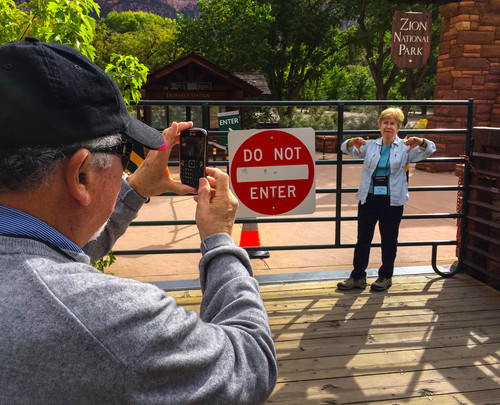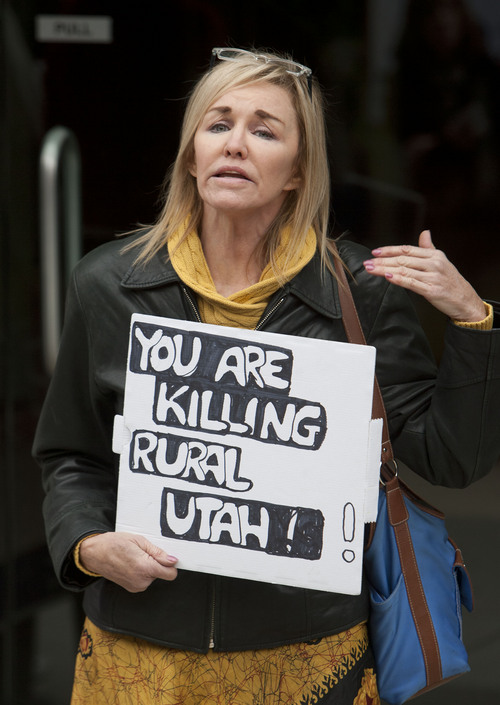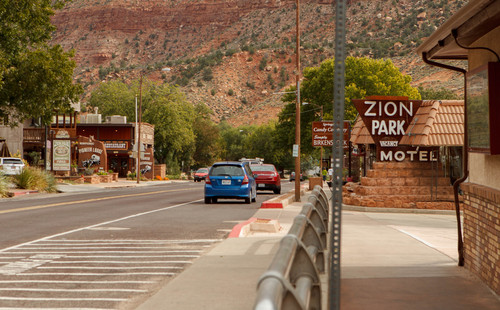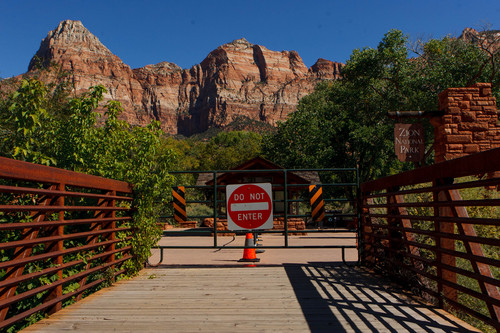This is an archived article that was published on sltrib.com in 2013, and information in the article may be outdated. It is provided only for personal research purposes and may not be reprinted.
The partial shutdown of the U.S. government took a nasty toll on Utahns' consumer confidence in general and on the state's tourist industry in particular.
The Zions Bank Consumer Attitude Index decreased 14.6 percent in October, the largest decline ever recorded since the bank began the survey in 2011.
The tourist industry, which appeared to be on its way to recording its fourth-straight year of record growth, was hit particularly hard.
Juliette Tennert, chief economist in the Governor's Office of Management and Budget, estimated that the Utah tourism industry suffered $30 million in losses due to the shutdown.
"You can't shut down without having an economic impact," said Vicki Varela, managing director of Utah's tourism, film and global branding office at a press conference Tuesday. "Before the shutdown, things were at an all-time high. Visitation was up and we were looking at a record year. With a bump in the range of $30 million, we're not likely to hit the record numbers we projected, But we have recovered quickly."
Since Utah's national parks receive about 10 percent of their total visitation in October, the timing of the shutdown was less than ideal.
Varela's agency released a number of horror stories from rural businesses affected by the shutdown. Since tourism provides between 29.3 percent and 41.9 percent of the employment in Wayne, Kane, Grand and Garfield counties, gateway businesses and communities were hard hit when national parks shut down.
For example, the Moab Area Travel Council estimated $9.9 million in missed revenue to Grand County businesses, many of which were experiencing record business in the days leading up to the shutdown.
Ruby's Inn, near the entrance to Bryce Canyon, reported losing just less than $1 million due to the shutdown. Lynn Syrett, the Inn's general manager, told state travel leaders that Utah paying to reopen the parks early saved Ruby's from another $1 million in losses.
Others didn't fare as well.
Ed Nelson, general manager of Best Western Red Hills in Kanab, experienced a loss of 12 percent in business. Iron County reported about $80,000 in lost revenue from cancellations, while a single hotel in Washington County serving Zion reported losing $87,000 in the shutdown.
According to tourism and travel research firm D.K. Shiffet & Associates, Utah hit $7.4 billion in direct travel spending in 2012, generating $960 million in state and local taxes. Varela said national parks and businesses in gateway communities such as Moab, Torrey, Springdale and Tropic generate about $1 billion a year.
Randy Shumway, chief executive officer for The Cicero Group, a market research firm based in Salt Lake City, said Utah will need a strong holiday spending season along with a good start to the ski season to help make up for some of the lost dollars due to the shutdown.
"With tourism we expect people to come into Utah and spend when they stay in a hotel, buy a coat or east at a restaurant," he said.
He said that the Utah Legislature has been increasing its tourism spending in recent years, and the $1.8 billion in planned expansion at the Salt Lake City International Airport as well as the establishment of the Utah Outdoor Recreation Office reflected the importance of tourism to Utah's economy.
Varela said the effects of the shutdown were mitigated when her agency organized a strategy to redirect tourists to state parks, releasing a 50 awesome alternatives to Utah's national parks on its website the morning of the shutdown. State parks honored passes purchased at national parks.
Torrey experienced a jump in business because the main highway through Capitol Reef National Park remained opened. All of the 140 motel rooms in Boulder and Escalante sold out during the shutdown as Kodachrome Basin State Park, Calf Creek Falls and Red Canyon experienced jumps in visitation. Moab outfitters had clients "reinvent their trip" by taking them to different areas.
Twitter @tribtomwharton









